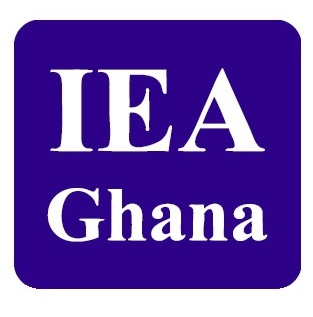IEA urges government to adopt aggressive revenue mobilisation strategy
 The Institute of Economic Affairs (IEA), a policy think tank, has urged the Government to adopt more innovative and aggressive domestic revenue mobilisation strategies to raise sufficient funds to execute its flagship programmes.
The Institute of Economic Affairs (IEA), a policy think tank, has urged the Government to adopt more innovative and aggressive domestic revenue mobilisation strategies to raise sufficient funds to execute its flagship programmes.
Dr Eric Osei-Assibey, a Senior Adjunct Fellow of IEA, said this at a press briefing in Accra on Thursday, to express the IEA’s views on the Mid-year Budget Review presented to Parliament by Mr Ken Ofori-Atta, the Minister of Finance, on Monday.
He observed that weak revenue mobilisation remained the biggest threat to the government’s ambition to meet its fiscal target, adding that the 33 per cent projection of revenue for the year was over-ambitious.
Dr Osei-Assibey said this was particularly reflected in the volatile nature of the expected revenue sources, international trade taxes, and corporate tax and considering the fact that government’s tax initiatives would take time for it to make the desired gains.
He, therefore, proposed that government should pursue a more aggressive domestic tax revenue mobilisation drive by ensuring that the compliance rate was enhanced substantially and the loopholes within the tax collection system were plugged.
“Much more innovation should be introduced in the tax collection system particularly within the informal economy to reduce cost of collection and evasion,” he said.
Dr Osei-Assibey noted that government’s tax revenue to Gross Domestic Product (GDP) was just 17 per cent coupled with the reduction in financial support from the country’s development partners.
He, therefore, said it must strategise to mobilise domestic revenues in order to sustain funding of government flagship programmes like the free Senior High School, One District, One Factory, and Planting for Food and Jobs.
He said the overall fiscal deficit for the first half of the year was 2.7 per cent of GDP against a target of 3.5 per cent while the year was expected to close at 6.3 per cent instead of the targeted 6.5 per cent.
Dr Osei-Assibey, also a Senior Lecturer at the Department of Economics, University of Ghana, applauded government’s Single Treasury Account initiative for public institutions, which would ensure fiscal consolidation, expenditure control and debt sustainability.
However, he entreated government to ensure transparency in its management and implement it gradually so that funds would be realised to finance government projects.
Dr Osei-Assibey urged government to ensure a more transparent, flexible and competitive interest rate determination in the banking sector.
“This should not be limited to mainstream commercial banks only but also non-bank financial institutions including the savings and loans companies and microfinance institutions, which even quote much higher lending rates,” he said.
He gave the caution that if those steps were not taken, government’s efforts at bringing down interest rates would not have the desired impact on the real sector of the economy.
Dr Frank Asare-Donkoh, the Director of Advocacy and Programmes at the IEA, urged government to sanction public officials that embezzled funds and put mechanisms in place to retrieve them.
He commended government for prudent economic management which reflected in the reduction of key macroeconomic indicators such as the inflation rate, the policy rate and the interest rate.
He called for the stabilisation of the local currency and the exchange rate and expressed optimism that these indicators would provide a solid foundation to roll-out its flagship programmes.
Source: GNA
